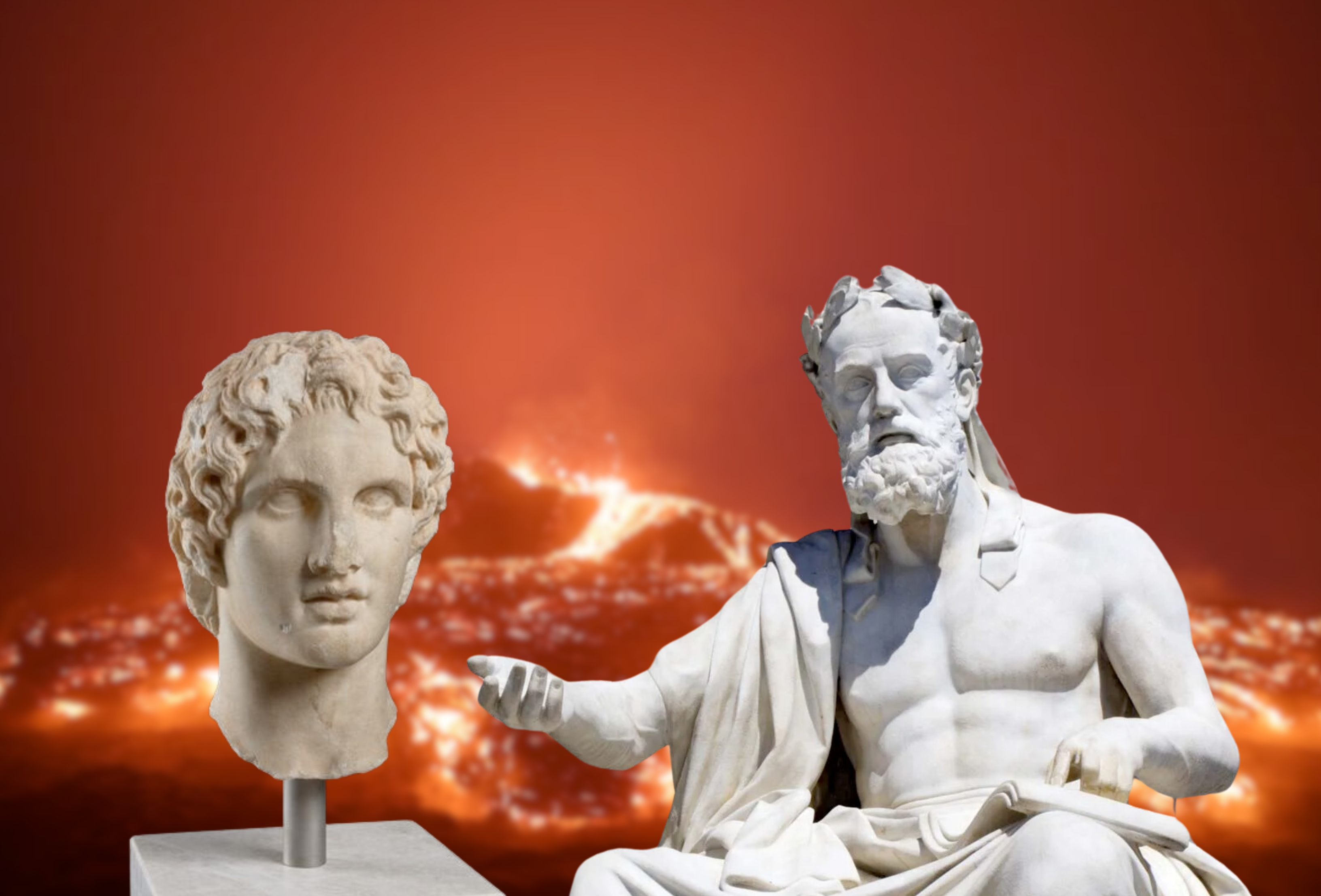crisis
10 Lessons That Inspired Alexander The Great, Part 8
April 2024

crisis
10 Lessons That Inspired Alexander The Great, Part 8
April 2024
Alexander The Great set into motion the events that would create the modern world. He studied and was inspired by Xenophon, a student-of-Socrates turned mercenary. Xenophon’s lessons on crisis leadership are timeless. In this series, we recount his epic, true story of war in the Anabasis and update this ancient wisdom to support you and your business the next time crisis hits.
STORY RECAP: Cyrus the Younger hires Greek mercenaries, The Ten Thousand, to kill his brother Artaxerxes II and seize the throne of the Persian Empire. Cyrus lies to The Ten Thousand about the purpose of their mission, excusing it as a law-keeping exercise against barbarians. When The Ten Thousand grow suspicious of the mission, they rebel. Their general Clearchus convinces them to trust Cyrus and continue with the mission. The Greeks are embroiled with in-fighting when Cyrus negotiates a shaky truce.
Artaxerxes and his army surprise Cyrus and the Greeks with an attack. The Greeks fend of the Persians. Stuck in tunnel vision, Cyrus attacks his brother and is killed. Xenophon pauses to honor and memorialize Cyrus’ good qualities as a leader.
The Greeks are stranded in the heart of the Persian Empire, surrounded by enemy forces. Fear and panic wash over the soldiers as they begin a retreat. The Persians invite the Greek generals for a peace-keeping truce. All the Greek leaders are spontaneously and simultaneously executed. Xenophon asks each soldier to become a leader. The army democratically reorganizes its leadership and decides to resume the retreat.
\--
If you do as you’ve done, you get what you got.
Trying the same strategy again and again… will only yield the same results.
It’s as if the master builder fell in love with the saw that cuts the trees… yet never picks up a hammer when it’s time to drive a nail… never picks up a brush when it’s time to paint.
Yet those stuck in “solve it” mode don’t pick up their head to see what is really needed from the situation.
In our modern, abstracted world this becomes even more challenging. In the corporate world we often don’t work with a saw, hammer, brush.
We work with our minds.
Do you have the wisdom to switch between different thinking styles?
This is adaptation.
To understand what is happening in the outside world, create a novel strategy that fits the situation, and change our behavior to execute that strategy.
\--
Re-organized and with new rotating leadership, the Greeks once more began their long retreat from Babylon back to Greece.
Xenophon quickly analyzed the situation. He realized that the army would need to prioritize speed and flexibility above all else.
He proposed to the soldiers: burn all the wagons, burn all the tents, burn all the baggage. Leave everything behind except weapons and food.
The Greeks voted once more. And so it was done.
Before setting off, he reminded the Greeks:
“Our common safety is our common need.”
Xenophon organized the troop formations and off they marched, with Xenophon in the rear.
“We can but make experiment of this arrangement, and alter it with deliberation, as from time to time any improvement suggests itself.”
The Greeks marched and the Persians followed.
The Persians sent more “friendly emissaries”, trying to sow division and fear, to brew a rebellion. But the Greeks stayed united and kept up their hard march.
Finally, one last emissary approached on horse to make peace. As he neared the Greeks, he and his cavalry suddenly attacked them.
The Persians used bows and spears to kill the Greek rearguard. The Greeks meanwhile, neither had the range to fire back, nor had the ability to pursue the Persian horsemen while on foot.
The Persians mocked and taunted the Greek rearguard as they picked them off one-by-one.
Frustrated, Xenophon orders a charge, which gets more men killed. But in the short-term it had the effect of chasing off the Persian soldiers.
Re-united with the other Greek generals, Xenophon is scolded for his rash impulsivity. Xenophon accepts the blame and shares:
“I was driven to pursue; it was too trying to look on and see our men suffer so badly, and be unable to retaliate. However, when we did charge, there is no denying the truth of what you say; we were not a whit more able to injure the enemy, while we had considerable difficulty in beating a retreat ourselves. Thank heaven they did not come upon us in any great force.”
After taking responsibility, Xenophon and the generals adjusted their plans. They agree to ask for volunteers and train the men in slinging, which could reach twice as far as the Persian bows. They commit to taking as many horses as possible from villagers during their march and slowly build and train their cavalry.
Both these strategies were new for the Greeks. They had neither trained men nor resources.
But day-in, day-out they marched: training more and more, collecting more and more. Over time they built a successful rearguard and throughout this time, kept the Persians at bay.
As the days wore on the Greeks noticed a pattern.
As evening approached, the Persians would stop following the Greeks, retreat, and set up their own camp out of eyesight. This pattern persisted. Again and again, the Persians kept up the routine.
One night, the Greeks made all their preparations to set up camp. The Persians as usual retreated far beyond eyesight. As night fell, the Greeks stealthily broke up camp and spent the entire night and following day doing a hard march.
Xenophon recounts:
“Thus the distance between the two armies grew to be so great, that the next day the enemy did not appear at all, nor yet on the third day.”
With that the Greeks had some temporary relief on their long journey home.
\--
While the Greeks had a plan, reality soon dashed their hopes of successful execution.
The army marched forward, but their rearguard was caught between marching and defending the army from the Persian thrusts.
As the army slowly atrophied and lost man after man, a crisis soon developed.
Some leaders may feel helpless – “this is the best we can do!”
Others may say – “stick with the strategy, even if we are bleeding out!”
Xenophon and the other Greek generals dared to innovate, dared to adapt.
They didn’t have slingers and they didn’t have horses. But they resolved to change their situation and build those capacities into the army. They dared to imagine and try, and in doing so, changed their outcome from crisis to opportunity.
They also took advantage of the Persian’s patterns.
While the Persians remained locked into their strategy, unable to make any adjustments, the Greeks were willing to be flexible and take risks.
More than anything else, they benefited from becoming unpredictable.
They knew they had to get home safely, quickly, and flexibly. And their actions show that they constantly adapted to make this a reality.

